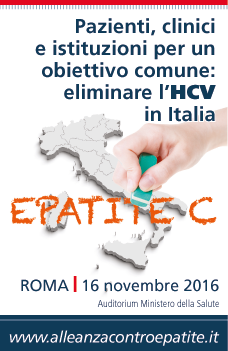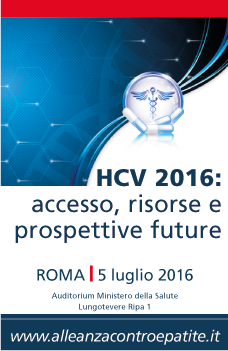18 Novembre 2011 |
 |
 |
|
NVHR Applauds Introduction of the Viral Hepatitis Testing Act of 2011 Contacts: Washington, DC — Reps. Bill Cassidy (R-LA) and Mike Honda (D-CA), joined by Reps. Charlie Dent (R-PA), Hank Johnson (D-GA) and Brian Bilbray (R-CA), today introduced the Viral Hepatitis Testing Act of 2011 in the House of Representatives, with Sen. John Kerry (D-MA) introducing a parallel bill in the Senate. The Viral Hepatitis Testing Act of 2011 is a landmark bill aimed at preventing deaths from liver cancer through early detection of hepatitis B and C. The legislation calls for a national effort to expand hepatitis B and C education and testing programs, authorizing grants to health departments and community programs to increase access to testing and linkage to care . “Viral hepatitis represents a looming crisis for our health care system,” said Daniel Raymond, Chair of the National Viral Hepatitis Roundtable (NVHR). “One in 50 Americans is chronically infected with hepatitis B or C, but the majority of cases have never been diagnosed. New and improved treatments mean that we finally have the tools to fight these viruses, and with rising rates of liver cancer and liver-related deaths from chronic viral hepatitis, the need for screening and early detection of hepatitis B and C is more urgent than ever.” The Viral Hepatitis Testing Act authorizes the Secretary of Health and Human Services to establish grants to public health agencies and private non-profit groups for hepatitis B and C testing, accompanied by education and referral to medical care. The Act sets a target of ensuring that 75% of people with hepatitis B and C will be diagnosed by 2016, as a result of these testing programs. “Viral hepatitis is a silent killer,” said Senator Kerry. “Many people don’t even know they have hepatitis B or C until it causes liver damage or even cancer years after the initial infection. Today as many as 5.3 million Americans are battling this disease, but we still don’t have a national strategy to back them up in their fight. This bill will strengthen awareness, prevention, and treatment, hopefully stopping this silent disease from spreading further and claiming more lives.” The Viral Hepatitis Testing Act also calls for training of physicians and other health care providers to encourage hepatitis B and C testing in clinical settings. In addition, the bill encourages coordination of federal hepatitis B and C testing guidelines between the Centers for Disease Control and Prevention (CDC) and the Agency for Healthcare Research and Quality (AHRQ). Differences between CDC and AHRQ testing guidelines have created confusion and inconsistencies, hindering the incorporation of hepatitis B and C testing in health care settings. An estimated 5.3 million Americans are chronically infected with hepatitis B or hepatitis C. According to estimates from the Centers for Disease Control and Prevention, as many as 65% of people with hepatitis B and 75% of people with hepatitis C have never been diagnosed. If left undetected and untreated, chronic viral hepatitis can cause serious and potentially fatal liver disease. Moreover, chronic viral hepatitis poses a growing challenge to efforts to rein in health care expenditures. Current annual health care costs in the United States associated with hepatitis B amount to $2.5 billion. For hepatitis C, annual medical costs in 2009 were $30 billion. Gaps and failures in the national response to the hepatitis B and hepatitis C epidemics were highlighted in a landmark 2010 report from the Institutes of Medicine, and a subsequent Viral Hepatitis Action Plan released in May of this year by the Department of Health and Human Services emphasized the importance of dramatically scaling up testing efforts. “NVHR welcomes the leadership of Representatives Cassidy and Honda,” said Raymond. “The Viral Hepatitis Testing Act makes a critical, targeted investment in early diagnosis that will save both lives and money. We urge Congress to take swift action to pass this vital legislation. The millions of Americans with undiagnosed hepatitis B and hepatitis C cannot afford to wait.” ### NVHR is a coalition of more than 170 public, private and voluntary organizations dedicated to reducing the incidence of infection, morbidity and mortality from viral hepatitis in the United States. For more information, visit www.nvhr.org
|








